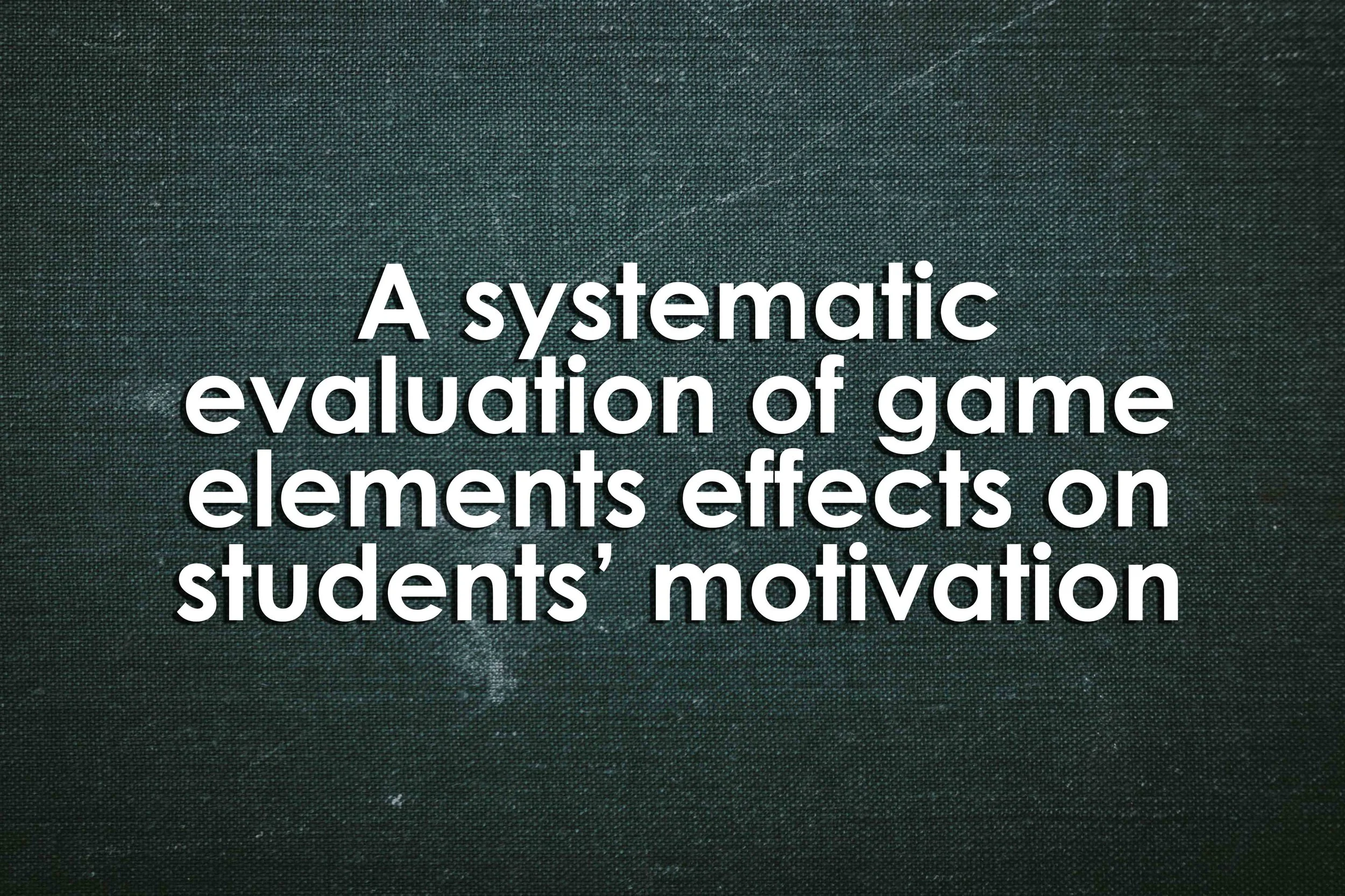A systematic evaluation of game elements effects on students’ motivation
A systematic evaluation of game elements effects on students’ motivation
A systematic evaluation of game elements effects on students’ motivation
By Rui Leitão, Martin Maguire, Sarah Turner and Laura Guimarães
Abstract
“Motivation theory is indispensable when discussing processes of learning. Learners who are motivated can learn almost everything. Students’ motivation is probably one of the most important factors for teacher effectiveness both for engagement in the learning process and high academic performance. To have effective environmental education, it is not only necessary to inform the public about the ocean but also to involve and engage them is essential. Motivation and engagement are some of the most commonly mentioned concepts in gamification, thus, a gamified application seems to have the necessary features to improve the motivation of students in the learning context of Ocean Literacy topics. The main aims of this work were: i) to understand through a systematic evaluation, how game elements affect the different motivation layers; and ii) to compare them in terms of enhancing the motivation to recycle among secondary school students (11-14 years). To measure students’ motivation, a pre-test, and a post-test using a recycling situational motivation survey were administered in a classroom environment in Portugal and the UK. Findings show a trend regarding the effect of game elements mainly on the most autonomous forms of motivation. The different game elements, each one with different degrees of effects, were shown to have potential to increase motivation.”
Reference
Leitao, R., Maguire, M., Turner, S., & Guimaraes, L. (2021, July 07). A systematic evaluation of game elements effects on students' motivation. Retrieved November 16, 2021, from https://link.springer.com/article/10.1007/s10639-021-10651-8
Keyword
Educational tools, motivation, engagement, gamification, mobile, Applications, ocean literacy, research

